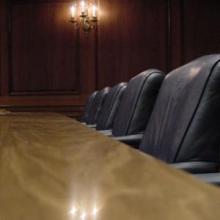Good Character Makes Good Leaders, BoB Attendees Told
Submitted by Rick Saia on

The virtuoso leaders scored high for other behaviors, he told CRN after his address, such as owning up to their mistakes and asking employees for help. What also scores points with employees are a culture of care and support, "fair" policies on compensation and rewards, fostering a "positive energy" that reflects the senior management team, and employee confidence in the efforts of senior management.
In what appeared to be a disconnect in the results, some lower-rated CEOs gave themselves far higher scores, on average, than their employees did (84 percent vs. 68 percent on a 1-to-100 scale). That gulf was a tremendous shock for one lower-ranking CEO of a Fortune 500 company -- 60 percent of his employees said it wasn't safe to tell the truth, for example, Kiel said. Weeks later, he added, the CEO and his entire management team were let go.
Meanwhile, CEOs who ranked higher -- or closer to virtuoso - were ranked slightly higher by their employees -- 87 percent -- than they ranked themselves.
Paraphrasing billionaire Warren Buffett, Kiel said, "When the tide goes out, you can tell who's not wearing swimming trunks."
One solution provider -- Ron Dupler, CEO of GreenPages Technology Solutions, a managed services provider based in Kittery, Maine -- called Kiel's findings and remarks "very relevant."
"When you look at what he's talking about, it's the essence of leadership," Dupler said.
Dan DiSano, president and CEO of Axispoint Inc., a New York-based services provider and application developer who facilitated the question-and-answer portion of Kiel's 45-minute session, said he believes in his research findings.
"I do think the culture is critical," and it starts with the CEO, DiSano said. And the leader of an organization has to figure out a way to have that culture "permeate" throughout the organization.






